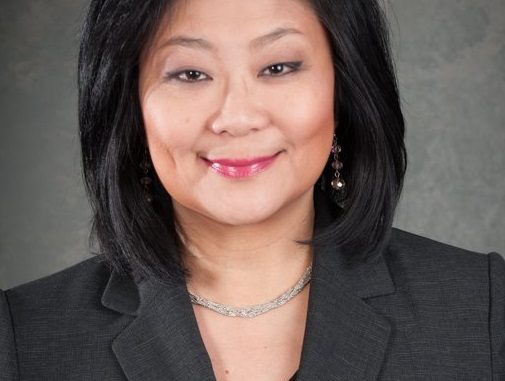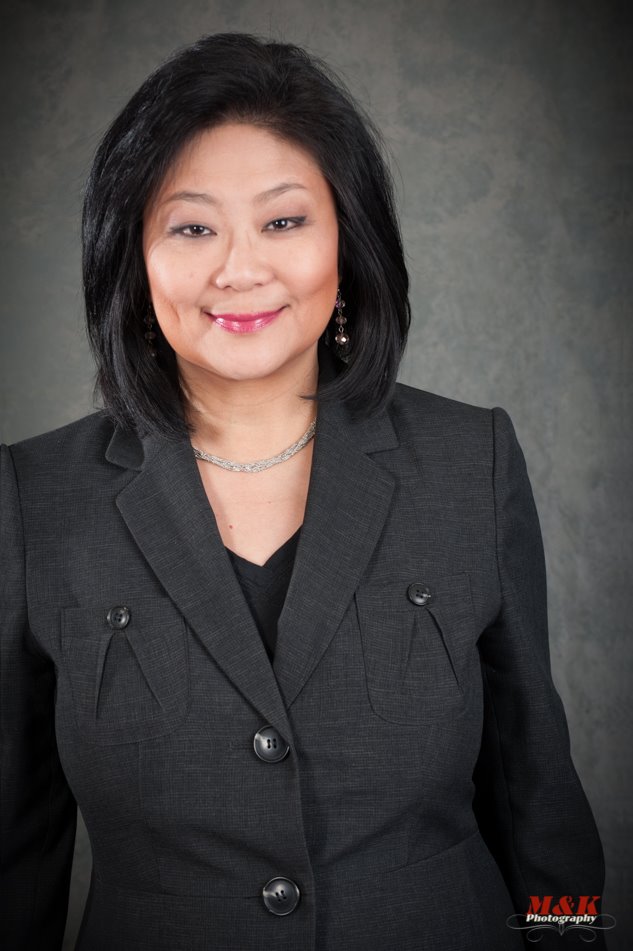
By Pamela Jenkins
With all the accomplishments you’ve made, President and Co-founder of a prestigious university that continues to excel and recipient of numerous awards, tell us, who is Jill Martin?
I come out of a communications background. I find it satisfying to be able to connect with people. Education is the ultimate way to make a connection. I have a degree in education and I later went into media as a profession. Then I circled back to higher education 20 years ago when my husband and I were invited to be advisors of a school. That experience inspired us to establish University of North America. With the support of several other higher education professionals, we made a significant amount of progress in 10 years.
Such a lofty goal. What were some of the challenges you faced?
We started off small, in rented places. Now we own a building on a beautiful campus. We’ve had to fight some hurdles along the way like surviving in an industry that is hundreds of years old. Most of our competitors have state backing and endowments, we don’t, but are confident about our school. We are very different. From traditional schools, too often, students find it difficult to obtain profitable employment after graduation. Students realize that there is a gap between what they learn and the skills needed for the jobs. We saw a way to address that problem 10 years ago by offering a different model of higher education.
What is this model?
We focus on “applied learning,” the integration of theory and practice. For example, our students begin a practical experience when they come into our Master’s programs. We either help them find jobs, or assist them in finding volunteer work so they can begin their practical experience together with their classroom experience. The idea is to take the practical experience to the classroom while taking the classroom experience to the workplace. It makes learning much more effective.
Your model appears cyclic in nature, how clever.
Yes, and it is a quick cycle because it doesn’t allow the student to wait until they graduate to apply what they’ve learned. A problem with the traditional model is that by the time the student graduates, some of what they’ve learned is already obsolete. This is especially true with IT and business, the two main areas of our programs. We want to make sure our students use the knowledge right away, which reinforces the learning and because they bring the workforce experience to the classroom, it reinforces the education. Our students can exchange their ideas not only from what they’ve learned in the classroom and textbooks but what they’ve learned from work as well.

By breaking away from the traditional model of higher-level teaching, you became very innovative in your approach to education.
Yes. We ensure that we use the most advanced educational technologies to enable innovative delivery of our programs and efficient operations of the university. We are also innovative in the programs we offer. From the beginning, we focused on computer science, IT and business. We offer career-oriented classes. Our students do well in the job market. The top employers of our graduates include Samsung, Verizon, Capital One Bank and some other major corporations.
Excellent faculty is another one of our emphases. Our professors must have both the educational background and professional experience in the field that they teach. This way, professors are able to bring current technology to students, so they don’t have to wait until they graduate before putting into motion what they’ve learned.
How do you ensure that your programs are suitable to students from various backgrounds?
We are committed to the accessibility of our programs. We offer classes on-campus and online so working adults can take our courses without career interruption. We make our leaning affordable. The total tuition for our Master’s program is $22,000 which is significantly lower than the average college tuition in this area. We offer certain scholarships for qualified students as well.
Do you feel this raises your level of credibility with incoming students?
Yes. We also make learning affordable. Our Master’s Program is $22,000 for the two-year term. Our professors have to have their Ph.D. They not only come with their educational background; however, they must work in the field that they teach. This way, professors are able to bring current technology to our students so they don’t have to wait until they graduate before putting into motion what they’ve learned.
We offer unique classes and constantly change our curriculum to match what is current in the job market. If something changes in technology, we immediate modify our curriculum based on the new technology. This makes our students more advantageous to the job market.
How diverse is the university?
We have a very diverse student population. Besides domestic students, we have a large number of students from Asia. We also have students from South America, Europe, Africa, and Middle
East. Our staff and faculty are very diverse. It is wonderful to bring all people together.
Do you feel this diversity aids in the education received at the university?
Yes. I come from an international background. I recognize the need for both sides and the added benefit of learning from each other. It is certainly valuable to have diversity and integration on campus. It expands the breadth of learning when you have people from various educational or cultural backgrounds in the same classroom.
Are there any veterans who attend the university?
Yes. My husband is a veteran! We have professors and students who are active or retired military. We deeply respect the military and the veterans.
Are you affiliated with the Department of Defense?
We are not currently affiliated with the Department of Defense but are working on building relationships with them as well as other government agencies. We invite our students who are serving in the military to come to some university events with their uniforms. They make us proud!
I think it’s great that you care about the extension of life verses the immediate. It says, ‘We care what happens to you beyond the education you seek.’ Speak to that.
Because we are small, we can be more attentive to our students. We look at each student as a relationship. We are partners with them in many aspects of their lives. Career services, housing, immigration and life issues. Students come to me and my colleagues for all sorts of matter. We are really the “home away from home” for many students.
What programs do you offer in your university?
We have an MBA program and Master’s in IT and Computer Science. Our Bachelor’s programs are in IT and Business Administration. We also offer an “English as a Second Language” program. It is important that we constantly review our programs and courses to ensure that they are up-to-date. There is a serious shortage of cybersecurity specialists, so we are expanding our
Cybersecurity courses to meet that demand. Our advanced Big Data courses have helped many students acquire high-paying employment, so we expect that curriculum to grow. We have courses in Machine Learning, Artificial Intelligence, Blockchain and Cloud Technology. On the business side, our students in Accounting, Finance and Project Management do very well in the job market.
I also caught up with two staff members at the university: Peter C. West, Ed. D, VP of Academic Affairs and Andrea Olson, Ph.D, VP of Strategic Planning. They shared their views about the college.
How are you infusing your knowledge and expertise for the betterment of the students?
Peter-Well, one thing that sets this school apart from other traditional schools is that we are small. As a result, it gives us the ability to be very student-accommodating. The students really appreciate that because it’s not often you can just walk into you’re president’s office and sit down with him or her to address an issue. Unlike other universities, our student body consists of international students. In that, we have integration and Visa issues to assist with. We have an more mature population and many are working full time. In addition, our faculty brings academic credentials to the school along with their industry experiences. That is important because our students will learn today what is important to their education and not something they learned 10 years ago.
Andrea-I am a mirror of students. Someone once said we ought to, ‘Show students a window of opportunity.’ Well, when you are looking through a window that means you are on the other side of it. I think students today want a mirror. They want something reflecting back to what they are aspiring to—that is achievable. This university is very inclusive—not exclusive. Because I understand being a working student while working on graduate work, I can empathize with our students when situations arise. Students are looking for achievable goals to advance their curriculum.

Ms. Martin, what are the future goals for the University of North America?
We want more people to take advantage of our career-boosting programs. We will also continue to enhance our program offerings and our collaboration with employers. Our graduates do well in their careers and we believe more students could benefit from our education and services. It will always be a priority to build our global presence. For example, I was recently invited to moderate a conference at the World Education Day in China. Several Nobel Prize winners and presidents of universities from the world were on the stage with me to share their educational views. We travel extensively to China, India, Africa, and South America. We have cooperative relations with institutions here and abroad. We’ve held many international conferences and leadership seminars on campus with participants from around the world. These efforts help our students build a global perspective. That is a unique character of the education from the University of North America. American educator John Dewey said, “Education is not preparation for life; it is life itself.” That’s what I believe in.
